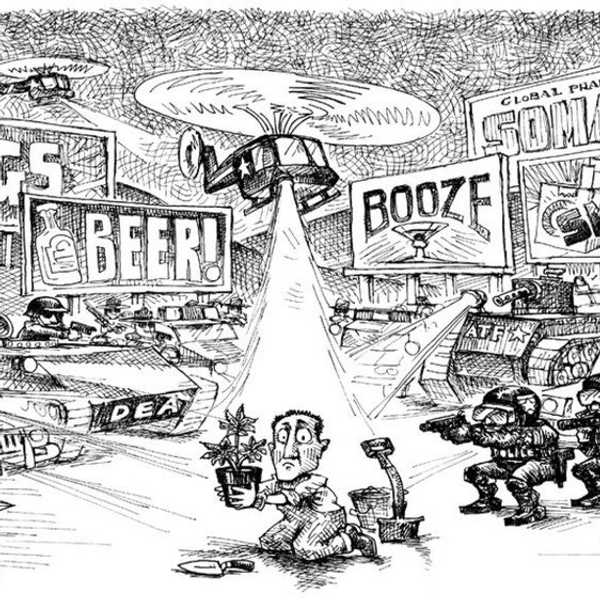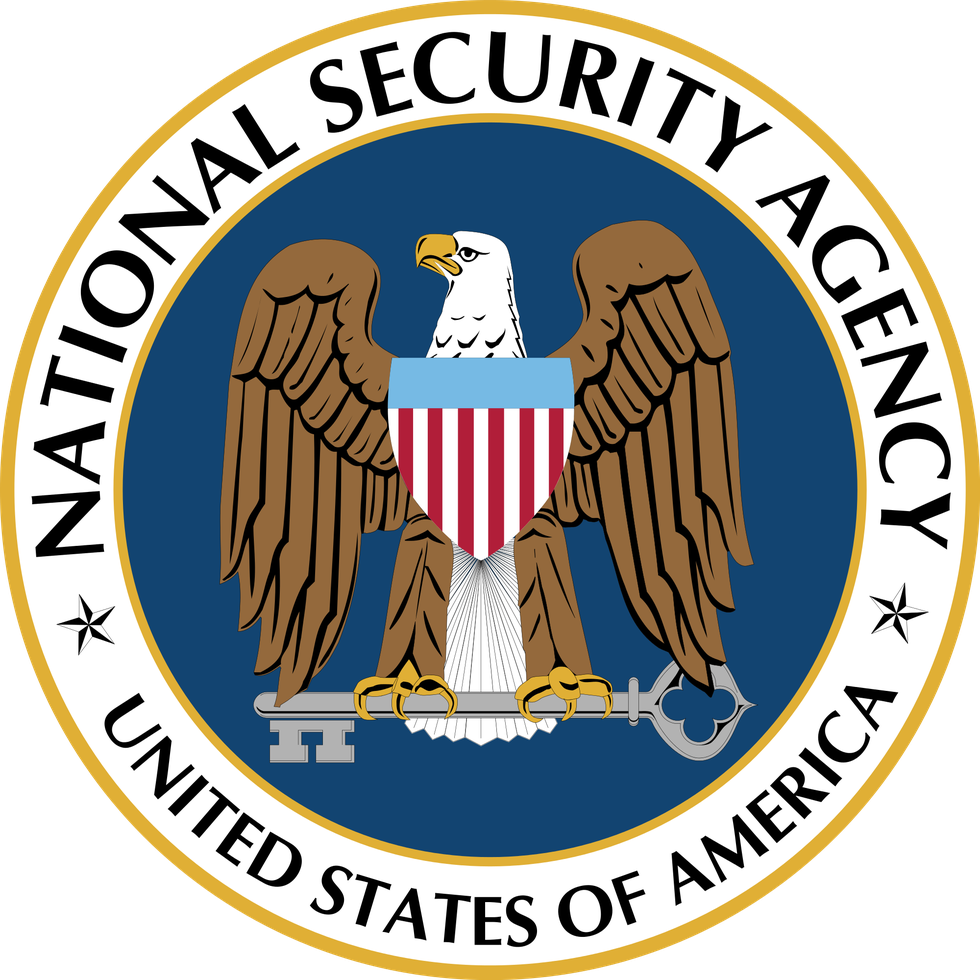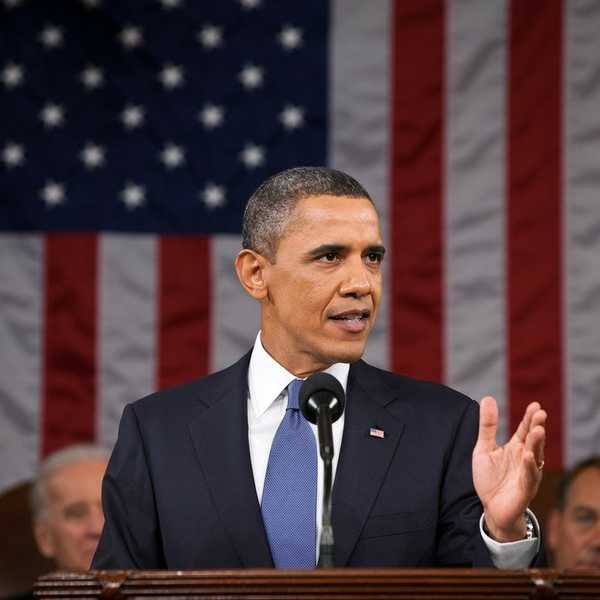In early December of 2015, news exploded across the nation about a shooting in San Bernardino, California. According to cnn.com, fourteen were killed and another seventeen were wounded. In the wake of this event, a controversial modern issue was stirred up once again: should the government have access to citizens’ personal data and communication records via cell phones and other such devices?
There is a great divide on this issue. Some think the ability of government agencies such as the National Security Agency to obtain information through surveillance is critical to the protection of citizens from violent crimes and terrorism. Others think this allowance is a breach of privacy and that other more straightforward methods of law enforcement are equally sufficient. However, the most important issue in this case is safety. According to David A. Graham writing in The Atlantic, the majority of terrorists are a part of either a terror organization or closely associated to one. This means that these attackers on the front lines have to have communication with each other, and at times their superiors as well. Government insight into these communications is an incredible boon in catching these individuals before they can accomplish their goals.
But the benefit of communication surveillance does not apply only to terrorism. While terrorism is certainly a hot topic and one of great importance in our current society, there are many other dangerous criminals and lawbreakers that strike much more frequently than terrorists: arsonists, kidnappers, serial murderers, rapists, sex offenders, et cetera. The impact that government surveillance could have on civilian safety could extend over all these types of criminals. One compelling example happened in Philadelphia in early 2015. A dangerous criminal wanted in Virginia had made his way up to Philadelphia undetected. The man, Delvin Barnes, attacked and abducted a twenty-two-year-old woman named Carlesha Freeland-Gaither and made off in a Ford Taurus. However, the scene was captured on a surveillance camera and was instantly fed to local law enforcement. Along with some detectives from Virginia, the Philadelphia police identified the car as belonging to Barnes and were “led to a shopping center parking lot in Jessup, Maryland, where Barnes surrendered without a fight. Freeland-Gaither, injured but intact, was returned to her overjoyed family.” This story shows the power of surveillance and the impact it can have on civilian well-being. There would have been no guarantee that Barnes would have been caught at all, let alone before his victim was harmed, if his crime had not been caught on the security feed (huffingtonpost.com).
The USA Freedom Act seems to have things headed in the right direction by allowing some surveillance but applying limits. According to the Judiciary Committee from judiciary.house.gov, the Act was signed into law on June 2nd 2015, and it made needed changes to the government policy of collecting and surveying data. Prior to this law, the National Security Agency had been doing what is referred to as “bulk collecting” data. This means they would intercept and save for analysis massive amounts of phone data. This data would be processed for suspicious activity (cnn.com).
((add more, I didn’t really get the point of this one so I would bulk it up more))
Many of those against government surveillance argue that it is unconstitutional. They argue that the fourth amendment guarantees the peoples privacy: “The right of the people to be secure in their persons, houses, papers, and effects, against unreasonable searches and seizures, shall not be violated, and no warrants shall issue, but upon probable cause, supported by oath or affirmation, and particularly describing the place to be searched, and the persons or things to be seized.” Some ideas of government surveillance, such as the NSA’s bulk data collection, seem to infringe upon this amendment. Allowing the government total access to all data and records would break the amendment’s promise for people to be “secure in their effects but upon probable cause.” If, for example, the NSA or FBI is monitoring all cell phone activity, there obviously cannot be probable cause to search every resident of the country in that way.
In addition, it can be argued that there is a slippery-slope situation in play here. Even if the government is only allowed some restricted access to records through private telecommunications companies, there is not really anything to stop them from slowly accessing more and more until they are back to bulk collecting. It is simply too easy for the upper echelons of government to hide things and feign transparency while conducting practices of overbearing surveillance.
Many anti-surveillance activists are asserting that the USA Freedom Act is not enough and more should be done to keep the government out of the daily lives of the people. These individuals consider surveillance as a gross breach of privacy, a foundational liberty all Americans have. However, granting privacy can produce an environment where there is no accountability and that raises the question whether one’s privacy is more important than the safety and security of a community. The fact is that no government agency can arrest or punish where no crime is committed. So if there is nothing to hide, surveillance should not seem threatening. Put simply, if one has neither record of criminal activity nor plans to begin such activity, then there is no reason why government access to communication records or even data collections should be a problem. If approached from a logical standpoint, one would realize that the government will not care about what goes on in the personal lives of the people—granted, of course, that nothing in that personal life is illegal.
While the opposing side could surely build a case around the fourth amendment, the argument does not stand completely airtight—simply because of the fact that the amendment itself states that the privacy it describes can be forgotten if there is supported reason to believe that an individual needs to be searched. The government could easily use its surveillance powers selectively on suspicious individuals in order to keep us safe without destroying all walls of privacy within the lives of the people. This may be a seemingly easy fix, but anti-surveillance makes a good point in that the government is hard to control. Agencies like the CIA have always been shrouded in mystery, never completely open; and while it is often for our own safety, there is truly nothing to stop them from operating surveillance beyond what is allowed.
What this argument comes down to is a matter of the moral obligations of the government. Of course, privacy is an important matter, and should be respected, that is why laws such as the fourth amendment exist in the first place. However, the biggest issue at hand here is not privacy, it is safety, and that is truly the government’s chief responsibility to the people of the nation. If the government cannot keep the people safe, then what are they there for?





















